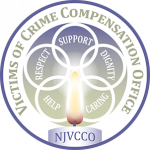How to file an application for a domestic violence restraining order pursuant to the Prevention of Domestic Violence Act:
With Law Enforcement Assistance:
Please go to your local police department who will assist you in applying for a Temporary Restraining Order.
If this is an emergency, please dial 9-1-1.
With the Court:
How to File for a Temporary Restraining Order (TRO) during COVID-19
- Due to COVID-19, courthouses are operating primarily remotely. Call or go to the county courthouse during normal court hours. It can be in the county where you live, where the defendant lives, where the act of violence took place, or in the county where you are seeking shelter. Contact a local courthouse.
An individual who wishes to apply for a restraining order remotely, without going to a courthouse, can call the Family Division. The Family Division in each county will have a telephone number posted on their web page to contact the court to apply for a restraining order.
- Contact your local police department if you need a restraining order after normal court hours.
They can help you ask a municipal court judge to issue a TRO.
See information provided here: www.njcourts.gov/public/covid19_one-stop.html#domestic_violence
Resources for victims of domestic violence:
Is this an emergency? Please dial 9-1-1
Resource information can be found here in both English and Spanish: www.njoag.gov/resources/victim-witness-services/covid-19-crime-victim-resources/
Resources provided by the Court can be found here: www.njcourts.gov/selfhelp/selfhelp_domesticviolence.html
Process to be used to request dissolution of the prohibition against victim contact imposed by statute when a defendant or juvenile is released from custody before the scheduled release date due to the award of public health emergency credits pursuant to L. 2020, c. 111:
The procedures to file a petition to dissolve the prohibition against victim contact are as follows:
- A petition may be filed by the defendant/juvenile (parent or guardian), the victim, or counsel on their behalf in the county where the conviction or adjudication occurred.
- For juvenile matters, all petitions and objections must be filed through the Judiciary Electronic Document Submission (JEDS).
- For criminal matters, self-represented litigants must file through JEDS, and attorneys must file in eCourts.
- Court staff will schedule the hearing date to be held within 30 days. Notice of the hearing date will be provided to the petitioner and to the county prosecutor’s office.
- The county prosecutor’s office will also receive notice of all petitions. If the petition is filed by the defendant/juvenile, the prosecutor’s office will serve the victim with a copy of the petition and notice of the hearing date. If the victim cannot be served, the prosecutor’s office shall immediately inform the court.
- If the petition is filed by the victim, court staff will provide the petition and notice of the hearing date to the defendant/juvenile at their address as provided by DOC/JJC.
- An objection to the petition may be filed no later than 10 days prior to the hearing date.
- The court may require the county prosecutor to provide information and/or appear at the hearing.
- Because these records will include information on victims and information in juvenile delinquency records for juvenile matters, all records related to these proceedings shall be deemed confidential pursuant to
- 1:38- 3.
The form “Petition to Dissolve the Prohibition Against Victim Contact” is available on the Judiciary’s website at www.njcourts.gov/forms/12699_petition_dissolve_proh_against_contact.docx

